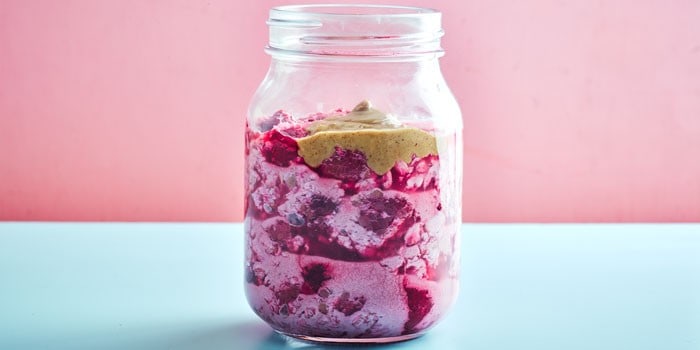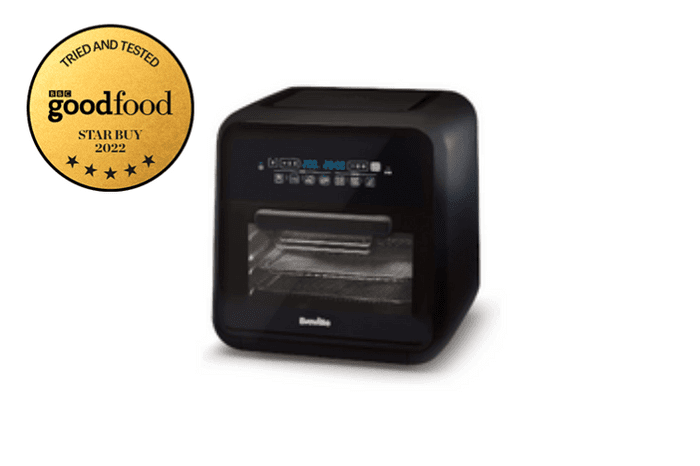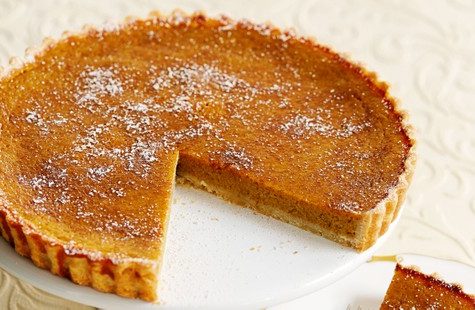What is peanut butter?
Peanuts, also known as ground nuts, are a legume rather than a tree nut. Peanut butter is the popular spread made from these legumes.
Commercially produced peanut butter is made by roasting the peanuts, blanching them in heat or water to remove their skins and then grinding them to a paste. The butter may be flavoured with oil, seasoning, sweeteners and other ingredients to enhance taste and texture. Peanut butter is available in either smooth or crunchy varieties.
Get inspiration with our delicious peanut butter recipes, from our homemade peanut butter to a peanut butter smoothie.
Nutritional profile of peanut butter
A tablespoon of peanut butter (16g) provides:
• 97kcal/402kj
• 3.6g protein
• 8.3g fat
• 2.0g saturates
• 2.1g carbohydrates
• 1.1g sugars
• 1.1g fibre
Many brands add ingredients such as oil, sugar or salt, and these will change the nutritional profile of the product – for example products marketed as ‘reduced fat’ may have added sugar to enhance the taste.

Is peanut butter healthy or unhealthy?
Peanuts are nutrient rich and provide a number of minerals including magnesium, iron and zinc, as well as copper and vitamins including the B group and vitamin E. However, peanut butter is calorie dense and contributes both saturated and unsaturated fat, with one tablespoon contributing about 10% of an adult’s recommended daily saturated fat intake.
Peanuts are a good source of plant protein and this, along with their calorie and fat content, means peanut butter may help control appetite and keep you fuller for longer. All of this suggests a moderate amount of peanut butter – about two tablespoons a day – may be enjoyed as part of a varied, balanced diet.
When buying peanut butter check labels for added sugar, salt, oil and preservatives. The best choice would be peanut butter made with as close to 100% peanuts as possible.
Is peanut butter safe for everyone?
Peanuts are a common allergen and as such should be avoided by those with an allergy to them. If this is relevant to you, check product labels carefully.
If an allergic reaction to peanuts is suspected, make an appointment with your GP or NHS allergy clinic to confirm diagnosis.
Learn more about food allergies on the NHS website.
Healthy peanut butter recipes
Peanut butter overnight oats
Chilli chicken with peanut noodles
Baked peanut chicken with carrots & cucumber
Nutty chicken satay strips
Chilli chicken & peanut pies
Enjoyed this? Now read…
Is pasta healthy?
Is porridge healthy?
Is halloumi healthy?
Is couscous healthy?
Is popcorn healthy?
Is hummus healthy?
This article was reviewed on 4 March 2022 by Kerry Torrens.
Nicola Shubrook is a nutritional therapist and works with both private clients and the corporate sector. She is an accredited member of the British Association for Applied Nutrition and Nutritional Therapy (BANT) and the Complementary & Natural Healthcare Council (CNHC). Find out more at urbanwellness.co.uk.
Kerry Torrens BSc. (Hons) PgCert MBANT is a registered nutritionist with a post graduate diploma in personalised nutrition & nutritional therapy. She is a member of the British Association for Nutrition and Lifestyle Medicine (BANT) and a member of the Guild of Food Writers. Over the last 15 years she has been a contributing author to a number of nutritional and cookery publications including BBC Good Food. Follow Kerry on Instagram at @kerry_torrens_nutrition_
All health content on bbcgoodfood.com is provided for general information only, and should not be treated as a substitute for the medical advice of your own doctor or any other healthcare professional. If you have any concerns about your general health, you should contact your local healthcare provider. See our website terms and conditions for more information.




